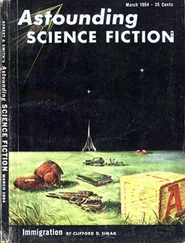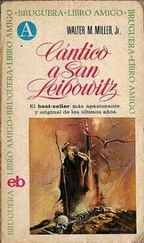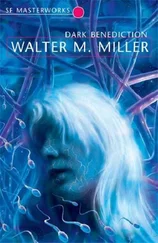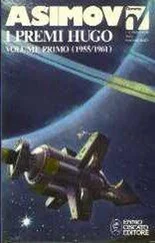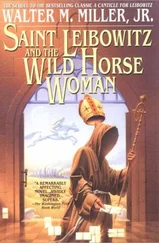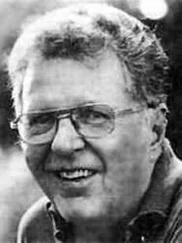More than once in the desert had Brother Francis encountered, near some parched arroyo, a small heap of human bones, picked clean and whitening in thesun .he was not especially squeamish, and one expected such things. He was, therefore, not startled when he first noticed the skull in the corner of the antechamber, but the flicker of gold inits grin kept catching his eye while he pried at the doors (locked or stuck) of the rusty lockers and tugged at the drawers (also stuck) of a battered metal desk. The desk might prove to be a priceless find, if it contained documents or a small book or two that had survived the angry bonfires of the Age of Simplification. While he kept trying to open the drawers, the fire burned low; he fancied that the skull began emitting a faint glow of its own. Such a phenomenon was not especially uncommon, but in the gloomy crypt, Brother Francis found it somehow most disturbing. He gathered more wood for the fire, returned to jerk and tug at the desk, and tried to ignore the skull’s flickering grin. While a little wary yet of lurking Fallouts, Francis had sufficiently recovered from his initial fright to realize that the shelter, notably the desk and the lookers, might well be teeming with rich relics of an age which the world had, for the most part, deliberately chosen to forget.
Providence had bestowed a blessing here. To find a bit of the past which had escaped both the bonfires end the looting scavengers was a rare stroke of luck these days. There was, however, always a risk involved. Monastic excavators, alert for ancient treasures, had been known to emerge from a hole in the ground, triumphantly carrying a strange cylindrical artifact, and then — while cleaning it or trying to ascertain its purpose — press the wrong button or twist the wrong knob, thereby ending the matter without benefit of clergy. Only eighty years ago the Venerable Boedullus had written with obvious delight to his Lord Abbot that his small expedition had uncovered the remains of, in his own words, “the site of an intercontinental launching pad, complete with several fascinating subterranean storage tanks.” No one at the abbey ever knew what the Venerable Boedullus meant by “intercontinental launching pad,” but the Lord Abbot who had reigned at that time sternly decreed that monastic antiquarians must; on pain of excommunication, avoid such “pads” thenceforth. For his letter to the abbot was the last that anyone ever saw of the Venerable Boedullus, his party, his “launching pad” site, and the small village which had grown up over that site; an interesting lake now graced the landscape where the village had been, thanks to some shepherds who diverted the course of a creek and caused it to flow into the crater to store water for their flocks in time of drought. A traveler who had come from that direction about a decade ago reported excellent fishing in that lake, but the shepherds thereabouts regarded the fish as the souls of the departed villagers and excavators; they refused to fish there because of Bo’dollos, the giant catfish that brooded in the deep.
“…nor shall any other excavation be initiated which does nor have as its primary purpose the augmentation of the Memorabilia,” the Lord Abbot’s decree had added — meaning that Brother Francis should search the shelter only for books and papers, not tampering with interesting hardware.
The gold-capped tooth kept winking and glittering at the corner of his eye while Brother Francis heaved and strained at the desk drawers. The drawers refused to budge. He gave the desk a final kick and turned to glare impatiently at the skull: Why don’t you grin at something else for a change?
The grin remained. The gold-toothed residuum lay with its head pillowed between a rock and a rusty metal box. Quitting the desk, the novice picked his way across the debris at last for a clever inspection of the mortal remains. Clearly, the person had died on the spot, struck down by the torrent of stones and half buried by the debris. Only the skull and the bones of one leg had not been covered. The femur was broken, the back of the skull was crushed.
Brother Francis breathed a prayer for the departed, then very gently lifted the skull from its resting place and turned it around so that it grinned toward the wall. Then his eye fell on the rusty box.
The box was shaped like a satchel and was obviously a carrying case of some kind. It might have served any number of purposes, but it had been rather badly battered by flying stones. Gingerly he worked it loose from the rubble and carried it closer to the fire. The lock seemed to be broken, but the lid had rusted shut. The box rattled when he shook it. It was not an obvious place to look for books or papers, but — obviously too — it was designed to be opened and closed, and might contain a scrap or two of information for the Memorabilia. Nevertheless, remembering the fate of Brother Boedullus and others, he sprinkled it with holy water before attempting to pry it open, and he handled the ancient relic as reverently as was possible while battering at its rusty hinges with a stone.
At last he broke the hinges, and the lid fell free. Small metal tidbits bounced from trays, spilled among the rocks, some of them falling irretrievably into crevices. But, in the bottom of the box in the space beneath the trays, he beheld — papers! After a quick prayer of thanksgiving, he regathered as many of the scattered tidbits as he could, and, after loosely replacing the lid, began climbing the hill of debris toward the stair well and the thin patch of sky, with the box hugged tightly under one arm.
The sun was blinding after the darkness of the shelter. He scarcely bothered to notice that it was sinking dangerously low in the west, but began at once to search for a flat slab on which the contents of the box could be spread for examination without risk of losing anything in the sand.
Minutes later, seated on a cracked foundation slab, he began removing the tidbits of metal and glass that filled the trays. Most of them were small tubular things with a wire whisker at each end of each tube. These, he had seen before. The abbey’s small museum had a few of them, of various size, shape and color. Once he had seen a shaman of the hill-pagan people wearing a string of them as a ceremonial necklace. The hill people thought of them as “parts of the body of the god” — of the fabled Machina analytica, hailed as the wisest of their gods. By swallowing one of them, a shaman could acquire “Infallibility,” they said. He certainly acquired Indisputability that way, among his own people — unless he swallowed one of the poison kind. The similar tidbits in the museum were connected together too — not in the form of a necklace, but as a complex and rather disorderly maze in the bottom of a small metal box, exhibited as: “Radio Chassis: Application Uncertain.”
Inside the lid of the carrying case, a note had been glued; the glue had powdered, the ink had faded, and the paper was so darkened by rusty stains that even good handwriting would have been hard enough to read, but this was written in a hasty scrawl. He studied it intermittently while emptying the trays. It seemed to be English, of a sort, but half an hour passed before he deciphered most of the message:
Carl —
Must grab plane for [undecipherable] in twenty minutes.
For God’s sake, keep Em there till we know if we’re at war.
Please! try to get her on the alternate list for the shelter. Can’t get her a seat my plane. Don’t tell her why I sent her over with this box of junk, but try to keep her there till we know [undecipherable] at worst, one of the alternates not show.
I.E.L.
P.S. I put the seal on the lock and put TOP SECRET on the lid just to keep Em from looking inside. First tool box I happened to grab. Shove it in my locker or something.
Читать дальше

